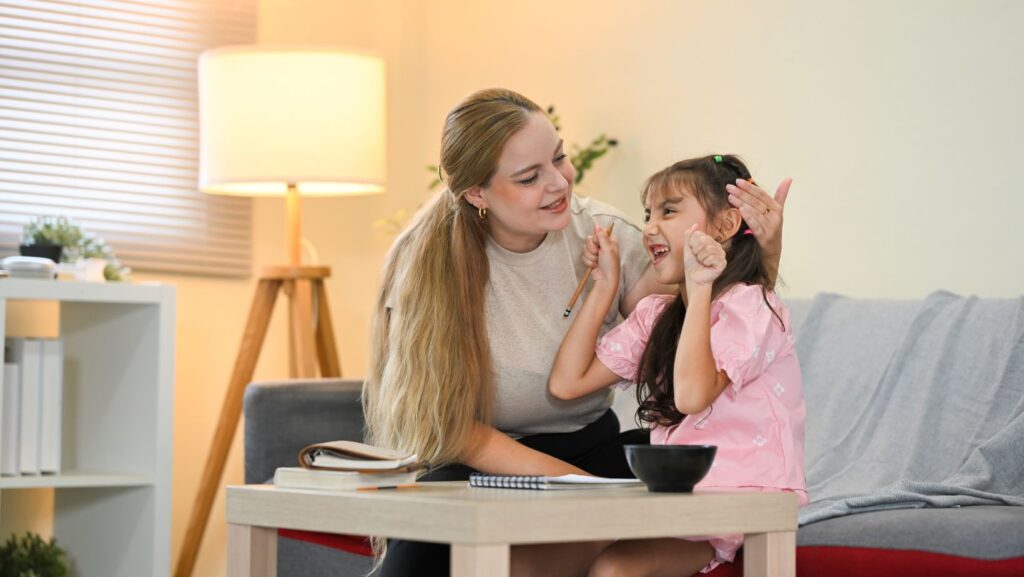Watching a child grapple with a grandparent’s dementia can be heart-wrenching. You might see confusion, sadness, or even a sense of withdrawal as they try to process the changes in someone they care about deeply.
According to the CDC, dementia is a persistent condition that influences cognitive abilities, particularly memory and reasoning. In the U.S., roughly 10% of individuals aged 65 and above are affected by dementia.
In families where the grandparents face the issue, it’s crucial to communicate with kids clearly and gently to help them feel reassured. When you assist your child in processing what’s happening, you protect their emotional well-being and also reinforce family ties.
This article explores the strategies that help your child handle the situation without fear or guilt. Moreover, it enables them to nurture their empathy and patience.
Communicate Honestly
The best course of action when discussing a grandparent’s dementia with your child is to be honest. AARP states that the natural reaction as a parent might be to protect kids from the reality of the situation. However, this approach is misguided. They deserve to be informed. It is much better to navigate the situation with some understanding.
Make sure to explain things in a way that is simple and suitable for their age to ensure that they feel both informed and safe. Gently explain that the changes in their grandparents’ memory or behavior are due to an illness, and not something personal.
It can help ease any fears or feelings of guilt they might have. Reassure them that it is perfectly normal to feel sad or frustrated. When you communicate with calmness and compassion, you teach your child how to overcome challenging emotions with understanding.
Acknowledge the Child’s Emotions
When your child is dealing with a grandparent’s dementia, you must acknowledge their feelings. According to Calm, you don’t need to agree with your child’s feelings to make them feel validated. Just recognizing that what they are going through is genuine can go a long way. It helps build trust and shows them that they do not have to change to gain your acceptance.
Foster open conversations by reassuring them that it is completely fine to feel however they do. If they cry or pull away, provide comfort without pressuring them to speak. Gently share your own feelings so that they understand that everyone experiences emotions.
You can also encourage them to explore creative outlets like drawing or storytelling to help them articulate their thoughts. Respecting and acknowledging their emotions helps them develop compassion and a closer bond with their grandparents.
Ensure Good Care for the Grandparent
Taking good care of your child’s grandparent who has dementia can bring a sense of stability and comfort to the entire family. When your child notices that their grandparent is being cared for thoughtfully, it can help lessen their anxiety.
Take the time to explain to your child that good care allows their grandparent to feel secure, relaxed, and valued each day. Nurse practitioners, especially those trained with MSN-AGACNP programs, can play a crucial role in this process. They can take charge of medical needs, help manage symptoms, and offer support to families facing the challenges of dementia.
According to Rockhurst University, nurses can sharpen their skills and take their careers to the next level through this program. They can care for patients during their most vulnerable moments.
Focus on Family Time
Quality family time can be a significant support for your child, especially in maintaining a bond with a grandparent living with dementia. Psychology Today notes that the bond between grandparents and grandchildren is a treasure trove of life lessons for kids. Research indicates that grandparents who stay connected with their families experience higher levels of life satisfaction and better health.
When everyone is together, it really boosts the overall well-being of the family. Additionally, family time allows everyone to forge new, joyful memories together. Invite your child to take part in the gentle, familiar activities that their grandparent enjoys.

Moments filled with laughter, patience, and kindness will teach your child what unconditional love means. When they feel included in these caring interactions, it deepens their connection with the grandparent. Furthermore, it fosters a sense of emotional security for the whole family.
Discuss Loss
Talking to your child about loss can be one of the toughest challenges when dealing with a grandparent’s dementia. Kids often pick up on the fact that their grandparent is changing or “not quite themselves,” which can lead to confusion and sadness.
Explain to your child that dementia can cause people to forget names, places, or even faces. At the same time, remind them that the love shared remains strong. It is normal for them to feel grief, even before any physical loss happens.
You can educate your child that grieving is a natural aspect of love by providing a safe environment for tears and introspection. This approach helps them develop resilience and emotional understanding through compassion and openness.
FAQs
Should children see grandparents with dementia?
Absolutely, children should spend time with their grandparents who have dementia, as long as it feels safe and supportive. Regular visits can really help strengthen the emotional ties and teach kids about empathy. It’s a good idea to prepare your child for any changes they might notice. The interactions can keep the connection meaningful and comforting for everyone involved.
At what age do most people lose their grandparents?
Losing grandparents is something that happens at different ages for everyone, shaped by family situations and health conditions. The actual loss, often through death, usually occurs from late childhood to early adulthood, and it can differ from one individual to another. Being aware of this can help families get ready emotionally and provide the support kids need during these transitions with care and patience.
Can a young child understand dementia?
Yes, young children can grasp the concept of dementia in straightforward terms. You can tell them that dementia is a condition that affects the brain, leading to forgetfulness and changes in how someone behaves. It’s crucial to reassure them that the person still loves them, even if their memories start to fade. While they may not understand every detail, kids are observant and pick up on changes around them.
Helping a child navigate the challenges of having a grandparent with dementia is a sensitive journey that calls for patience, honesty, and a lot of compassion. You contribute to their feeling of emotional security by understanding their feelings and telling them that you are available to support them.
Always remember that your unwavering love and presence offer a sense of stability, especially during times of change. Teaching your child to embrace solicitude can really boost their emotional resilience and deepen the family connections for years to come.
